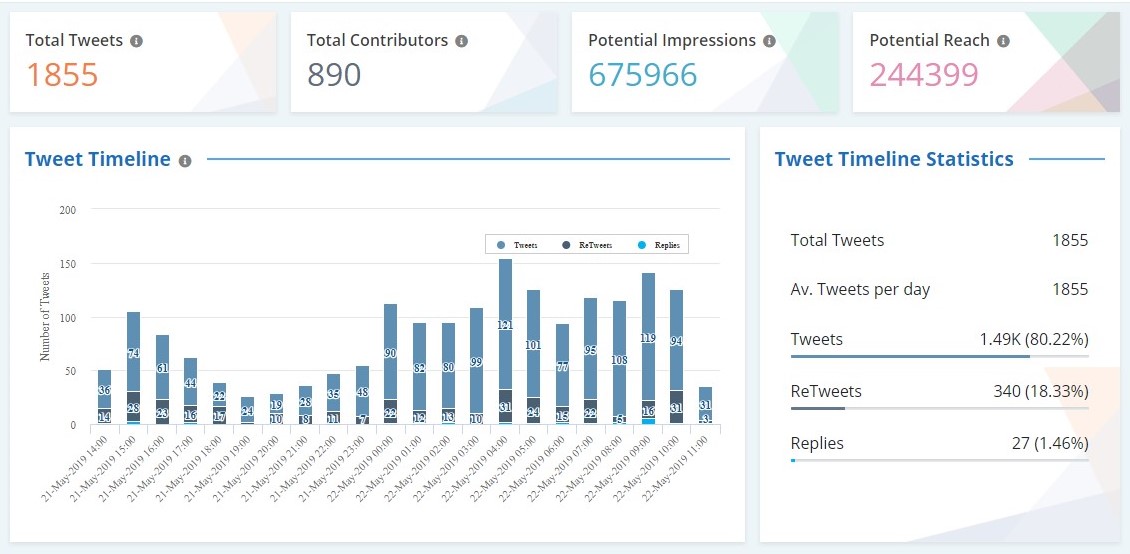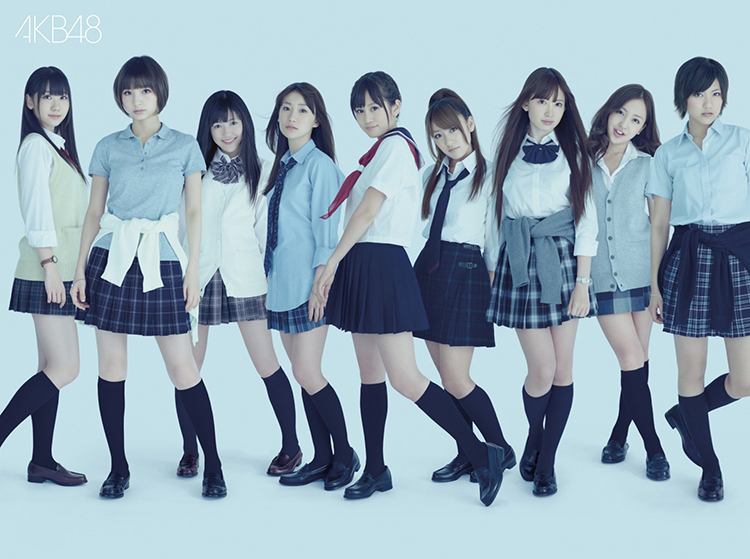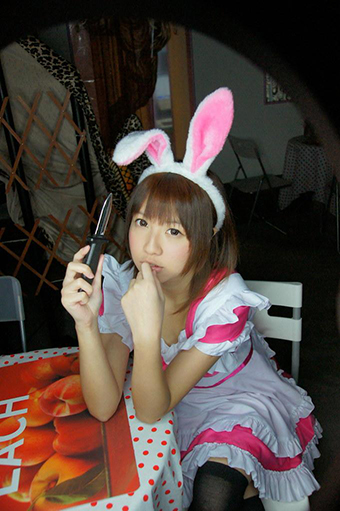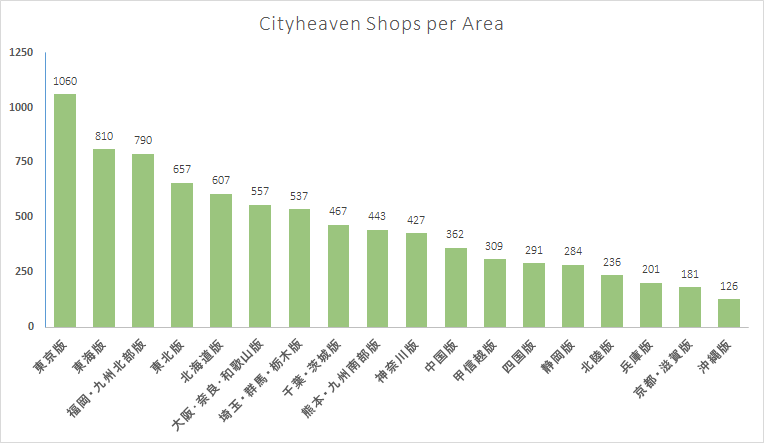Barely Legal: the Japanese Sex Industry
For a long time Japan has been known as a country rife with sexual frustration, reflected in their ever present sex industry, although it remains prohibited by law. Due to loopholes, this sex industry is defined by far more than the business here in Europe. For example, payed interactions between people of opposite sex are not entirely uncommon. These interactions are not required to contain sexual favours (though it does happen), but rather attention and affection. Think of Enjo Kōsai, Idols, Maid cafés etc. To shape a more clear image of the core and the scale of these phenomenons, we’ve taken a close look. Next, we try and see just how much these may or may not break Japanese laws. Using online sources regarding popular sex culture and the Japanese law, we try to bring a fresh image of a small but representative part of the modern Japanese sex industry.
Enjo Kōsai (援助交際)
Enjo Kōsai, or compensated dating, is a recent phenomenon taking the Japanese streets by storm. This means that younger girls and women take care of older men in exchange for gifts or money. Because of the rumored use of underage girls, it is often regarded as a form of child prostitution. Seen as these date-like activities do not explicitly mean sexual intercourse, this kind of relationships and transaction find their refuge in a grey zone of the law. Such other possible services include for example buying used panties from the girl. There are even specialized shops selling panties, the infamous Burusera shops. The other way around does also exist, younger boys or men dating older women. This is literally called Gyaku enjo kōsai (逆援助交際) or reverse compensated dating. The most common reasons for getting into the business would be the quick, easy money and the corresponding financial independence.
Papakatsu (パパ活)
Papakatsu is very similar to enjo kōsai, but there is a twist. The enrolled women are often university students or young adults, who are not able or wanting to work, desire an extra income or simply have to pay for their education. The relationship exists until those purposes are fulfilled, or until the demanding party simply does not have any money left. Comparable to the West’s ‘sugar daddies’, the Japanese version does have a small but important difference. Sexual activities are a no go. Therefore the men only pay for company. In 2017 a drama called “Papakatsu” was released. It focused on the relationship between a student and an older man, who slowly fell in love with each other. Logically, Mamakatsu is the female variant of this phenomenon.
Down below, you’ll find a graph describing the use of the hashtag #パパ活 in tweets. This helps understanding the scale of the activity.

- Total Contributors: The amount of users that used the hashtag in a tweet, retweet or comment.
- Potential Impressions: The number of times that a tweet with this hashtag was displayed on a user’s timeline. The user didn’t necessarily see the tweet.
- Potential Reach: The amount of accounts that this hashtag reached.
Social media
Social media plays an important role for enjo kōsai as well as for papakatsu, since it’s used as platform to promote itself to a greater audience. The hashtags #援交 and #パパ活 are used to this effect. Interested men then react to this posts by sending a DM (direct message) to try and meet up. This does not always happen in a direct way. The girls are partially managed by an intermediary (mostly men), who states a few rules to the possible customer. Ingo (隠語), translated as secret language, is often used in this kind of barely legal messages. This is commonly used to discuss conditions like price, time, the possibility of sexual activities, accommodation and other details. Ingo is also used on dating sites to discern people interested in real relationships from people just wanting to pay for company.
Idols (アイドル)

Idol, or “aidoru”, originally was a term used to describe an object, image, or persona subject to worship. Today, the term invokes an image of young girl groups and boy bands of South Korea or Japan, still gaining in popularity and reaching thousands of new fans each day.
This article will take a closer look at young women in Japan’s popular idol industry, who are met with more and more sexual and belittling offers of older men.
"Although they use maids to lure customers in, they offer a vastly different range of services."
Connection with the Japanese Sex Industry
When thinking about the sex industry, one is quick to think of porn, prostitution, escorts or sex shops. Some of these activities can also be found in the idol industry. For example, during a meet & greet event where (more likely than not) older men use the opportunity to interact and physically touch girls who are often only between 12 and 18 years old. These events also offer activities such as “innocent” hand holding, lap pillows and hugs. And when girls of the idol industry lose their “innocence” when they grow older, they start to lose fans. With the loss of their largest factor of success, their innocence and cuteness, more naughty options are explored to sustain their fanbase and keep their popularity. For example, half-naked pictures, sold in suspicious shops in Akihabara. Or appearances in more erotic magazines.
The Role of Producers
Producers who attempt to preserve the innocent appearance of the girls, in a way, also try to exploit the talent of their idols. To keep their image, idols are required to follow strict rules, such as not having a romantic partner, which would prevent their fans from fantasizing of a relationship with the idol. To keep idols of getting a boy- or girlfriend in secret, producers often schedule long workdays, which are only revealed at the start of the day itself. All to make it more difficult for the idol to plan any dates or other plans with a romantic interest.
The darker side of this story is that often the situation can cascade into one more detrimental for the idol. For example: a girl wants a future as an idol and seeks a producer to break into the industry. To become more popular she takes part in meet & greet events with fans. However, when the idol grows older, she loses part of her perceived innocence. To keep her current popularity she can accept more sexual tinted offers, to take revealing pictures on instagram or for erotic magazines, or she can take part in meet & greets with a more “physical” aspect. And to remain relevant, these offers continue to escalate, each has to be more revealing and kawaii than the previous. At the time her career meets its eventual end, the idol remains alone and without a steady fan base. More often than not, she has put her idol career before her studies and it is too late to continue them. So eventually, she may opt for darker professions and opportunities just to receive a paycheck.
Maid cafés (メードカフェ)
"Usually outside of a maid café are a few girls that have to lure in potential customers. Chances are that they are underage."
In 2001 the first maid café was opened in Akihabara, Tokyo. Even though the phenomenon was originally only targeted towards otaku’s, the target audience slowly expanded and reached other types of men, women and even couples and tourists. Activities also became more varied. Apart from the classic waiting service, the girls also do some dressed massages, games, craftwork etc.
Children

The single most controversial topic regarding maid cafés is the aledged use of underaged girls. This phenomenon is called Joshi kōsei (JK), and alludes to the hidden prostitution of minors in Japan. Outside of a maid café, there are often a few girls trying to invite customers inside. These are commonly not yet adult. Inside the maid café are other girls of non-specified ages. A few younger men keep a close eye on them. These guys are the ones offering taking care of special services like walks and hugs by the girls. Furthermore, Japan does not have an official association fighting child prostitution, except for a few volunteers. They describe the enrolled girls as being easy targets, some have mental issues, others have almost no self-confidence or are doing self-harm or have tried to commit suicide. The volunteers blame the oversexualised media, but the clientele seems to blame the girls’ parents. It would be their fault that their daughters end up in such a shady business like the maid cafés. This point of view seems very popular, as it make feeling guilty unnecessary.
Gateway
According to others, Joshi kōsei would ease the way to actual prostitution, laying the groundwork so to say. Even though Tokyo had banned minors from the business since a few years, rumours of the Ura opu, secret options, keep circling. Tokyo’s law does not only forbid the employment of underaged personel, but also the explicit mentioning of underaged girls or even the idea of inciting feelings towards them. Furthermore, it is forbidden to work a job that only puts you in contact with people of the opposite gender. A manager of one of the most popular cafés of Akihabara, Tokyo says the rumours originate from a different business. These kind of venues are temporary and mostly located in the darker alleys. Although they use maids to lure customers in, they offer a vastly different range of services. The official, lawful cafés never offer any form of sex, but in the ore obscure places, these requests for sexual services are not explicitly denied. This is of course illegal, but the women working there are seemingly all of age.
Despite these developments in Tokyo, a big part of the sex related industry and services are still based in Akihabara. Online searching quickly points out that the metropole is still the place to go, with no shortage of personnel in the industry. The data down below reflects the number of businesses per region, with Tokyo leading by a large margin.

Nipponbashi (日本橋)
Nipponbashi is the Osaka version of Akihabara. The maid café hype has also surged there, but in a slightly different manner. Nipponbashi managers mostly get their profits from swindling unsuspecting clients. They do this by asking exuberant prices for everything, which causes the unlucky victims to lose hundreds of euros in a single night. Prostitution is less recurring in Osaka, a plus note for the business there.
The Sex Industry and the Law
The Japanese sex industry are covered by the Law concerning businesses that affect public morals (Fuzoku Eigyō Torishimari hō). This law determines until when these establishments can remain opened, where and if people are allowed to start a sex related business, among other things. Gambling halls and maid cafés that offer sexual services are also covered under this law. These establishments have to declare themselves to the Commission for Public Safety (Kōan iinkai), and have to meet certain requirements to get a permit. For example, a record of employees must be kept, the shop must close after midnight, etc. That last requirement especially bothers brothel owners: usually, they try to get their business classified as a bar or restaurant that offers alcohol until late at night, which can conduct business until after midnight. Partly because of this, food and drink are offered in many brothels, to keep up appearances.
Besides that, there is also the Anti-prostitution Law (Baishun Boshi Hō), which prohibits explicit prostitution. To conduct business under this law, brothels have to use a number of legal loopholes. For example, under this law, prostitution is illegal if vaginal penetration takes places: to circumvent this, many brothels offer alternative options to entertain their clients. Another oft-used excuse is that the client and the prostitute, allegedly a waitress in a “restaurant”, fall head over heels in love. They have sex, then split up again: technically speaking, nothing illegal occured, because the sex happened between two lovers, and the client merely paid for his food or drinks. This also ties into the Enjo kōsai phenomenon, where the illusion of a relationship is created to avoid being labeled as prostitution. These loopholes are relatively well known, but the Japanese authorities often look the other way.
CONCLUSION
The ‘barely legal’ phenomena that we’ve written about aren’t per se illegal, as long as all the people involved aren’t minors. Unfortunately this isn’t always the case, especially when it comes to Enjo kōsai or the maid cafés. This way the underage girls that are attracted by the opportunity to earn some quick cash get engulfed even deeper in the gray zone of the sex industry. The authorities don’t tackle the backgates that keep these establishments standing, even though it keeps rising in popularity. Maid cafés, compensated dating and the idol business keep on growing and don’t show any sign stagnation. Despite the endeavours of motivated citizens it seems that the current status quo will remain intact for a while.